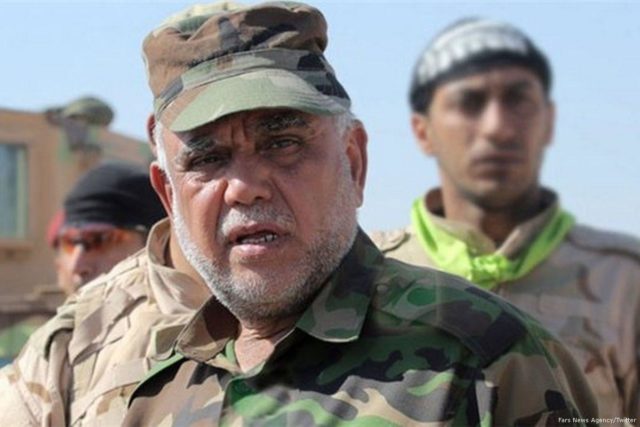
Iraqi Elections Poised to Further Empower Pro-Iran Hadi al-Ameri
Publication: Militant Leadership Monitor Volume: 9 Issue: 6
By:

On May 12, Iraq held its first parliamentary elections since the government of Iraqi Prime Minister Haider al-Abadi reclaimed control of disputed territories from Kurdish forces and declared the military defeat of Islamic State (IS) militants in late 2017.
A decisive factor in these successes was the Shia-dominated al-Hashed al-Sha’bi forces (PMU – Popular Mobilization Units), the volunteer fighting force that was established in June 2014 in response to a religious pronouncement issued by Grand Ayatollah Ali al-Sistani, who called on abled Iraqis to enroll in the ranks of Iraqi security forces (ISF) and defend against IS’ sweeping advances across Iraq.
The Iraqi security forces (ISF) were too disoriented and demoralized to take charge of enlisting and training these volunteers, affording the pro-Iran Badr organization the opportunity to claim a de facto leadership of the PMUs. Formed in 1982 during the Iraq-Iran War of 1980-1988, and led by Hadi al-Ameri, Badr is undoubtedly the most powerful and most organized paramilitary group in Iraq (see Militant Leadership Monitor, August 2, 2017). And its power is about to expand.
Riding on its military victory—and the aura of sacredness it has received across much of Iraq, including Sunni-dominated areas—Hadi al-Ameri’s al-Fatah (Conquest) electoral alliance succeeded in achieving a significant political victory in the 2018 parliamentary elections. Al-Fatah won 47 seats, second only to Muqtada al-Sadr’s Sai’roon (Forward) Alliance with 54 sears. Most recently, Sai’roon and al-Fatah have joined forces, forming the nucleus of the first post-election coalition building process. (Alghad Press, May 19; al-Sumaria, June 12).
However, the election results have not been ratified yet, following allegations of fraud in overseas, internally displaced persons (IDPs) and Kurdish Peshmerga voting, which led the Parliament and the Supreme Federal Court of Iraq to endorse manual recounting of the votes (al-Hayat, June 24). The High Judicial Council is now taking the lead in the recounting process, though it is unlikely to change the configuration of seats won by the al-Fatah Alliance, which gained its most seats in the Shia-dominated south.
Al-Ameri is poised to play a significant political role in Iraq going forward, in addition to his paramilitary role. He may well become Iraq’s next prime minister. If the PM post is not secured, the al-Fatah alliance is likely to be allotted influential ministerial positions such as the foreign, oil and defense ministries, in addition to the interior ministry, which is already controlled by Badr.
One feature of the rise of Ameri is the anti-U.S. posture he embraces. He is likely to place a strain on the presence of U.S. troops in Iraq given Fatah’s ties with Iran and the unfriendly relations between Iran and the Trump administration. It must be noted, however, that al-Ameri is both a pragmatist and nationalist, and he may well surprise everyone by adopting a friendly or neutral stance toward the United States if he deems it to be in Iraq’s interests. He has in the past differed with Iran: indeed, he recently invited a number of dignitaries to his home for a dinner party, including the U.S Ambassador to Iraq, Douglas Silliman (Iraq News Network, June 4).



